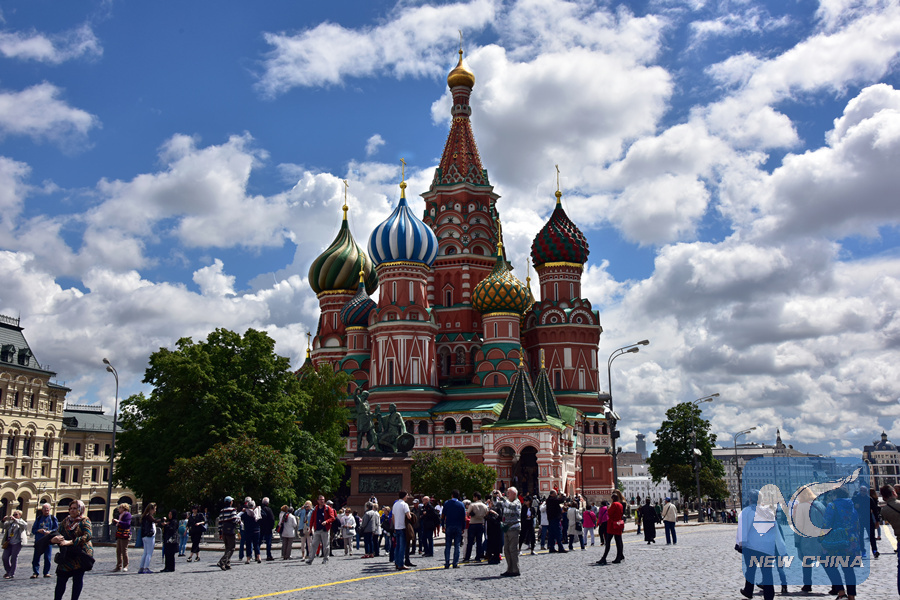'Rich Russians:' Book review
- By Heiko Khoo
 0 Comment(s)
0 Comment(s) Print
Print E-mail China.org.cn, October 7, 2018
E-mail China.org.cn, October 7, 2018

The collapse of the Soviet system in the 1990s saw the victory of Russian capitalism and the rise of an oligarchy. Russia's then president, Boris Yeltsin, backed by an entourage of Western advisors, encouraged this. In May 1993, Yegor Gaidar, who had served as Yeltsin's prime minister and finance minister, spoke at the London School of Economics. As his speech came to close, he pulled an earnest face and said: "All the Russian capitalists are reading Karl Marx's Capital today." Then, pausing with a grin for dramatic effect, he added, "Chapter 26, The Primitive Accumulation of Capital!"
This was a frank admission that Russia's oligarchs robbed, plundered, cheated and killed their way to wealth and power, by seizing control of the banks, industry and property. As a result, they acquired an image of mafia-like robber barons, and rightly so. While the people were expropriated, gun battles and turf wars shaped the character of the new capitalists and settled the property question.
Elisabeth Schimpf?ssl's book "Rich Russians: From Oligarchs to Bourgeoisie" published by Oxford University Press, examines the ideas and outlook of today's capitalist class. She shows how, a generation after the great plunder of the 1990s, Russia's rich now display softer, more subtle features. As the great Italian political philosopher Machiavelli explained, force and violence alone can never suffice to sustain an enduring ruling elite. Rather, force must be combined with consent in order for the power of those above to be accepted, justified and appear as legitimate in the eyes of those below – the subordinate classes in a society.
Schimpf?ssl is an Austrian sociologist, living and teaching in the United Kingdom. Her unique study is based on interviews with eighty representatives of the wealthiest stratum in Russia. It provides a thoroughly entertaining and insightful window into the world of the Russian elite in the form of short stories. These stories are like vignettes in which rich Russians explain how they see the world and how they justify their own position. Some of their character traits are common to the rich everywhere; others have a distinctly Russian tinge to them.
Many rich Russians see their social position as the product of their own hard work. This universal capitalist delusion also exists in Britain and the United States, where the idea that anyone can make it to the top is reiterated time and again. For example, in the latest Sunday Times Rich List, 94 percent of the featured people are defined as self-made. Such statements are pure ideology, as they obscure the inequalities at work, produced by the objective environment and circumstances in which people are born, raised and live. In addition to that, such declarations imply that "lack of success" is not caused by structural dynamics inherent in capitalist society, but are down to individual failure, laziness and stupidity.
In addition, many rich Russians ascribe their own position to the natural evolution of their ancestor's qualities through genetic inheritance. This, of course, is a negation of the idea that "anyone can make it" and it is such contradictions that make their stories fascinating.
Schimpf?ssl's book is not a political examination of the Russian system but an investigation of the formation of the psychology and outlook of Russia's capitalist class. A recurrent theme is the extent to which the Russian bourgeoisie emerged from within the elite strata of Soviet society.
They pay homage to their lineage and take pride in finding notable ancestors from whom they claim to have inherited their distinct strengths and qualities. In their family tree they proudly discover a General here, an intellectual there, nobility from pre-revolutionary times, or a respected Soviet engineer. Many take pride in being descendants of the Soviet intelligentsia, rather than just being wealthy.
This also implies a new "modesty," which can involve dressing down, albeit at considerable expense, and perhaps occasionally using public transport rather than their chauffeur driven cars. Indeed, a few of them even say they regard Karl Marx as their role model!
Most importantly, all of them spend part of their fortunes on philanthropic endeavors. This endows them with the aura of having a social conscience. (At the same time, this does not deter them from denouncing the "undeserving" poor as layabouts and lumpens.)
Patronage of the arts is a particularly popular means of atonement for the sins of Russia's billionaires. Perhaps it is also a way to make up for their lack of creative and artistic qualities, which, for all their claims to genetic superiority, are not especially prevalent amongst their ranks. Acquiring the paintings of great artists is clearly easier than producing works of genius. So perhaps they believe that sponsoring an exhibition full of great art works is itself a work of art.
The offspring of the bourgeoisie are much more aligned with their Western counterparts, both in their tastes and business practices. The intergenerational inheritance of a vast pot of wealth is now taking place. It will be history's biggest ever transfer of wealth in relation to the small number of people involved in the process. None of the current rich inherited their wealth. Hence, the challenge of reproducing the capitalists as a ruling class is entirely new.
The character of the second generation of the bourgeoisie preoccupies their minds. Wealth preservation is not simply a question of owning loads of money but of constituting a layer of society whose position is respected and, ideally, admired.
Heiko Khoo is a columnist with China.org.cn. For more information please visit:
http://china.org.cn/opinion/heikokhoo.htm
Opinion articles reflect the views of their authors, not necessarily those of China.org.cn.





